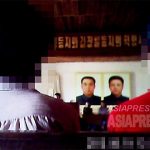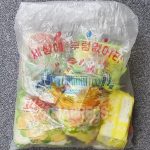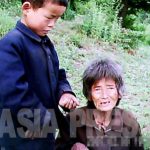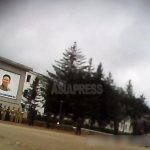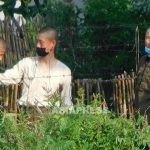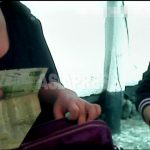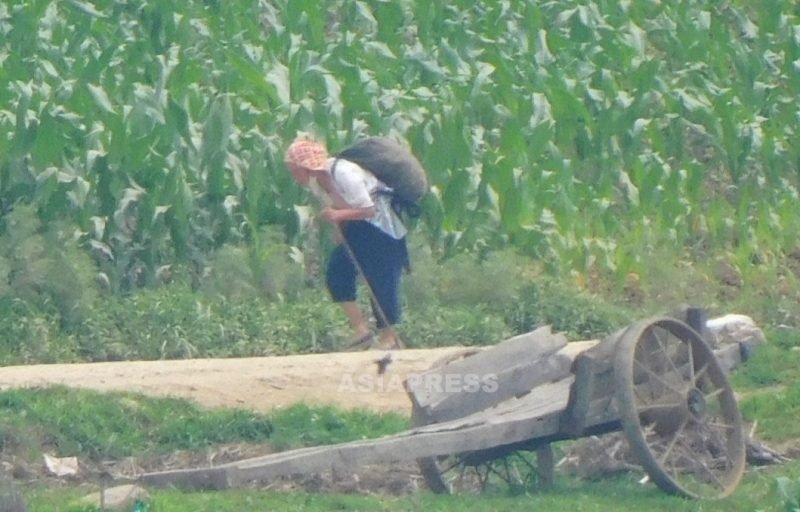
<Lighting Up N. Korea's Four Dark Years> (1) Almost the Only Escape Route -The New Generation ‘Donju’ Who Crossed the Sea Tell About COVID-19, Chaos, and Social Change
The Kim Jong-un regime used the pandemic as an opportunity to fully intervene and control the market. It's no exaggeration to say that the pandemic period was a continuous record of residents losing their livelihoods one by one as the authorities pursued abrupt policy changes without adequate preparation. In this installment, we'll examine what those policies were and how they were implemented. (JEON Sung-jun)
◆ Failing to provide relief and even taking away rice bowls
"There's an old saying that even if you can't give alms, you shouldn't break the beggar's bowl... That really goes too far."
These are the words of a man who appears in a video filmed directly by the brother of Kim Chung-yeol, who defected in May 2023. The anger that North Korean residents feel toward the authorities is palpable in the words of the man in the video, who says he came to Cheongdan County, Hwanghae Province, to find food.
This video was released at a UN side event on North Korean human rights in Geneva, Switzerland, in March this year, and has raised deep concern among people around the world about the humanitarian crisis in North Korea.
◆ Was the pandemic a 'golden opportunity'?
As the closure continued with no end in sight and private economic activity contracted as a result, the Kim Jong-un regime appears to have viewed this period as an opportunity to establish a state-led economic system.
Beginning around October 2020, about nine months after the border closure, North Korean media frequently began to describe the pandemic situation as a "golden opportunity. An October 17 editorial in Rodong Sinmun, the official newspaper of the Workers' Party of Korea, argued:
"The current situation of completely sealing the borders, airspace and sea to thoroughly block the inflow of the malicious virus can be said to be a golden opportunity to maximize our internal strength and development momentum by relying on our own power, technology, raw materials and resources."
The authorities also emphasized the phrase "golden opportunity" in a Rodong Sinmun editorial on November 9, arguing that the current trials are an opportunity to strengthen the nation.
This movement was publicly announced at the 8th Congress of the Workers' Party in January 2021. At that time, "communism," which had disappeared during the Kim Jong-il era, reappeared and a new five-year national economic development plan was announced, with "concentrating all efforts on socialist economic construction" as the strategic line.
In addition, an economic policy office was newly established in the Central Committee of the Workers' Party as a specialized department to guide and supervise this. It's particularly noteworthy that the unified leadership of the state is emphasized as the basic direction of economic management.
Given these trends, the new policy shift of the Kim Jong-un regime seems to have begun in earnest around late 2020 to early 2021.
◆ The disaster caused by state-led economic policies
The policy direction of the state during the pandemic period can be summarized in two ways. One is an attempt to suppress private economic activities and for the state to monopolize the rights to import, produce, transport, store and sell goods, and to confiscate the profits generated in the process. The other is for all residents to report to state-owned factories and enterprises to normalize production, and for the state to take responsibility for residents' livelihoods by providing rations and living expenses.
While this sounds plausible, these policies, implemented without sufficient preparation, brought disaster to the lives of North Koreans.

Around April 2021, signs of tight control over private commercial activities were detected in the northern region. An ASIAPRESS reporting partner said at the time:
"The measures started after April 15 (Kim Il-sung's birthday). The aim is to eradicate private businesses outside the public markets. Selling bread and noodles on the street, running private restaurants at home and 'grasshopper markets' (selling goods on the street) are completely banned. If caught, the goods are confiscated.”
When the state's anti-market policies began, the dollar and yuan exchange rates fluctuated, and the prices of food and daily necessities again became unstable. The most devastating thing was that most urban residents, who lived from market to market on a daily basis, lost their livelihoods. The lives of urban residents, which were already difficult because of the quarantine blockade, were fatally affected during this period.
◆ Food as a means of control

In the second half of the pandemic, the government's attempt to revive the rationing system is noteworthy. The problem is that the state is shifting responsibility for rations to individual institutions and companies and is only encouraging the normalization of rations through pronouncements. In this situation, local reporting partners have said that rations were provided from 3 to 7 days a month, although there are differences between workplaces.
Kim Chung-yeol believes that the problem was exacerbated when the regime took control of people's access to food in the second half of the pandemic and implemented a food monopoly system through state-run grain sales outlets.
"When individuals could distribute freely, I could buy the amount I wanted at any time, but since the state implemented this system, it became difficult to buy even if you had money [due to lack of stock]."
In addition, the authorities forced residents to work and ruthlessly punished those who didn't. In a situation where cash income from the market was cut off, people began to go back to work to supplement their meager rations and to avoid punishment.
Kim Myung-ok, however, said that such attempts were one-offs or lasted only a few times in the absence of corporate self-help measures or state support to secure rations.
"If they say to go to work in a socialist way, why doesn't the state provide guarantees? There are no rations, no wages. Isn't that telling us to starve? They should give guarantees before they control. People sit together and talk a lot about it."
This situation shows that the government's obsession with restoring the rationing system is a ploy to subjugate the people to the state, using food as a means, rather than as a way to guarantee stable food for its citizens.
◆ North Koreans lose their livelihoods and are left 'with necks twisted'
"People are in a state of twisted necks with their income completely cut off. They're not completely dead yet, but they're in a state where they can't do anything.”
Kim Myung-ok describes the situation at the time like this.
"There were many, many people who sold all their possessions and were left out in the cold. How desperate must they have been for people to sell their homes and live in tunnels, cooking meals?"
Behind the government's ability to enforce such an unreasonable policy was the iron hammer of the quarantine law. Since the beginning of the pandemic, the Kim Jong-un regime has created an atmosphere of terror through ruthless repression and punishment, citing the quarantine as justification.
Between November 2 and 21, 2020, when the possibility of COVID-19 spreading to China was raised in the northern border city of Hyesan, the entire city was sealed off for 20 days, and all kinds of activities, including markets, came to a halt. At the time, an ASIAPRESS reporting partner described the local atmosphere as follows:
"You can't even go to the house next door. Not even an ant is moving in the city, except for the vehicles of the Ministry of State Security (secret police) and the Ministry of Social Security (police), and no one is going to work or mobilize."
- <Lighting Up N. Korea's Four Dark Years> (10) The Capitalist Ghost Under the Socialist Roof (2) "Leave the Quota to Me" - Are Wealthy Individuals the Driving Force of Rural Economy?
- <Lighting Up N. Korea's Four Dark Years> (9) The Capitalist Ghost Under the Socialist Roof (1): From Private Ship Owners to 'Unions' Negotiating with the Central Party... Ship Owners Pushing Boundaries
- <Lighting Up N. Korea's Four Dark Years> (8) Pandemic-Induced Financial Crisis and the Regime's Response: 'Tax-Free' North Korea Imposes New Levies, Including 'Fireplace Tax'
- <Lighting Up N. Korea's Four Dark Years> (7) North Korea’s Pandemic Power Play: State Seizes Market Control as “Donju” Crumble
- <Lighting Up N. Korea's Four Dark Years> (6) Humanitarian Crisis is a Man-Made Disaster: Intensifying Chaos and Disorder... North Korean Version of 'War on Crime' as Told by COVID Survivors
- <Lighting Up N. Korea's Four Dark Years> (5) What Happened During COVID... "Drink Willow Branch Brew" - Misguided Quarantine Policies Only Led to Residents' Deaths
- <Lighting Up N. Korea's Dark Four Years> (3) The Second Link in the Tragedy – Ruthless Quarantine Policy, "The State is Scarier than the Virus"
- <Lighting Up N. Korea's Four Dark Years> (2) The First Link in a Tragic Chain - Border Closure... "Corona Was a Nightmare, It Was Difficult to Buy Even a Single Needle"
- <Lighting Up N. Korea's Four Dark Years> (1) Almost the Only Escape Route -The New Generation ‘Donju’ Who Crossed the Sea Tell About COVID-19, Chaos, and Social Change
<Inside N. Korea> Residents Face Starvation as Border City is Blocked Off to Contain Potential COVID-19 Outbreak
At the time, the reporter said that the suffering of residents living day to day was extreme due to the total ban on going out, and that starvation deaths were occurring, starting with the socially vulnerable, such as families with the elderly, patients, or single parents.
In the next installment, ASIAPRESS will look at the tragedy wrought by the coronavirus that struck these North Koreans. (To 5 >>)
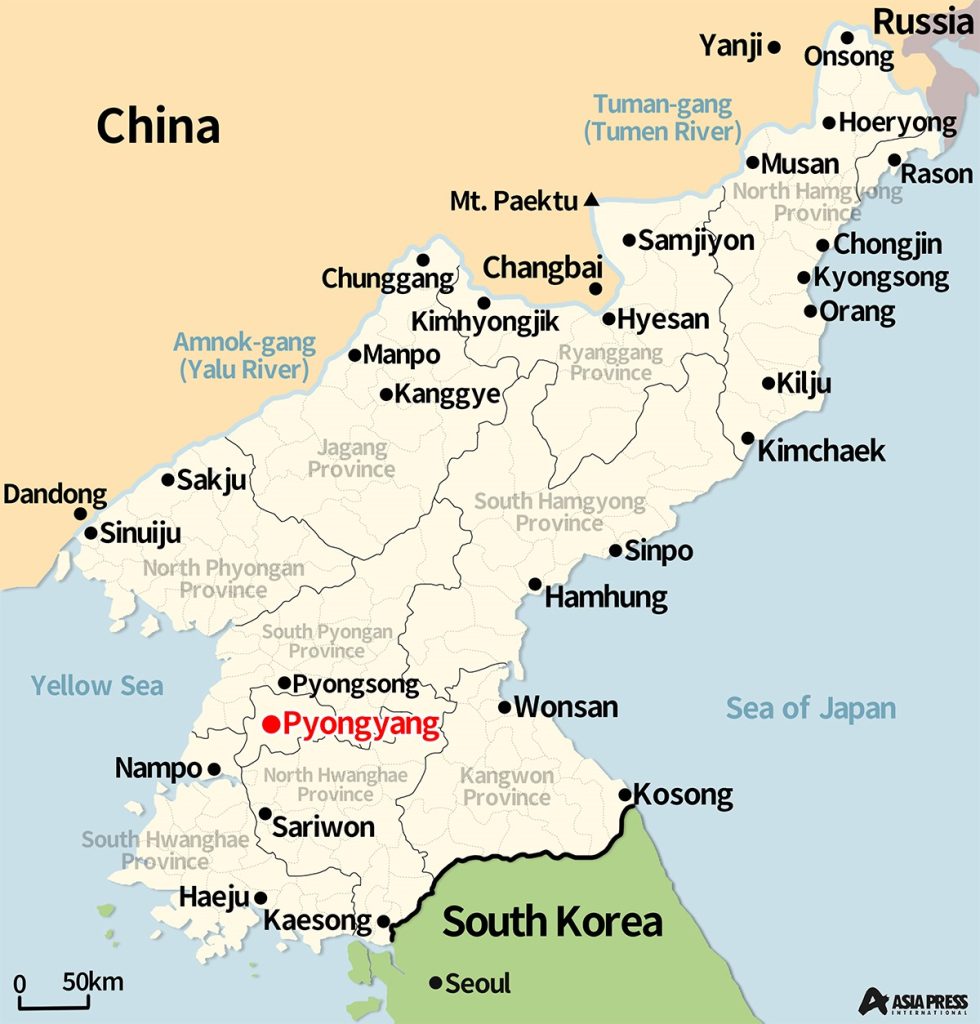
<Lighting Up N. Korea's Four Dark Years> (1) Almost the Only Escape Route -The New Generation ‘Donju’ Who Crossed the Sea Tell About COVID-19, Chaos, and Social Change
